#greco roman studies
Text
should i do classical (greco-roman) archaeology or north east african archaeology for my lowkey undergrad paper in germany..
#i’m more interested in north east africa (been big into carthage recently) but i will be Going to italy and greece later this year so#i suppose greco roman would be cool to study and then go see??#yes this is a free opportunity for extra curricular study to support my career and yes i’m immediately choosing a childhood special interest#ixt
5 notes
·
View notes
Text
I HAVE BEEN LEARNING ABOUT MISTER AUGUSTUS OCTAVIAN/OCTAVIUS GAIUS CAESAR SINCE 8TH GRADE. HOW AM I STILL LEARNING MORE THINGS ABOUT HIM THAT MAKE ME GO "octavius babe holy shit what the fuck what the FUCK dude"
#roman history#overly sarcastic productions#Augustus Caesar#octavian caesar#octavius caesar#original#like is he as crazy as nero? no. but the thing about emperors like nero and caligula is that while a lot of us know their names because#they were so unhinged - they were too violent and volatile to actually have very effective reigns as rulers.#their effect on history is limited in some ways because a mad king will go down in history for madness but little else#but Augustus Caesar was the most ruthless ambitious terrifying motherfucker to ever meddle in the Mediterranean#he makes Julius Caesar look chill. he was so GOOD at political ruthlessness during a time of upheaval that he made himself into a GOD#we still have months named after him and his adoptive father and i live in North America just about 2000 years after he died!#he re shaped a huge part of the world and i have been studying greco roman culture for so much of my life and HOW is it i JUST#found out that this bitch SACRIFICED OTHER ROMANS TO THE GODS. WHICH WAS NOT. A. THING. PEOPLE. DID. EVER. IN. ROME.#and then AFTER THAT he becomes a GOD EMPEROR. how????#did the sacrifices... WORK?!#like i cannot emphasize enough that I have learned specifically about Roman culture for years#and this is the first I have ever heard of an instance of human sacrifice. it wasn't a thing! it was wicked not a part of their religion!!#and he just did it as a political move. because he was fucking crazy.#and I'm just going to go ahead and use that language because I am a person with severe mental illness and you can bite me.#octavius caesar was fucking crazy. not in the mental illness sense tho - in the HOLY SHIT THAT SHIT IS FUCKING CRAZY sense#although All Things Considered he probably did at least have some kind of trauma regarding all the murder and war and stuff#I once saw a gender swapped production of Julius Caesar and it was really good#and I remember being terrified of my friend lucette playing Octavius. it was great#HUMAN SACRIFICES. IN FUCKING ROME. WHAT. FUCKING WHAT. I AM LOSING MY MIND#how the FUCK did this man manage to remain politically successful after this????? I guess it helped that there was no internet#it's not that I'm surprised about brutality in Rome it was their whole brand it's that this particular form of violence is extremelY#not something that romans DID. like it just wasn't part of the culture this wasn't a thing
31 notes
·
View notes
Note
(dotr-rose-love here) Question: What do you consider magic in the ancient Greek world? Besides Pythia's or other types of fortune telling I mean & sacrifices to the Gods. I saw your post about writing an essay on it and got curious. I'm Greek btw & personally do not enjoy the way magic is shown in our mythology in general, which is why any mentions of it in my work mostly involve stuff from Norse & Germanic nations + the Christian version cause I write about demons & they work well together.
well hi!! I didn't know you were Greek, that's awesome!!
And boy, that is a loaded question lol. A lot of our time this semester was dedicated to defining magic. It's not really an easy answer.
The main definition we used was according to Radcliffe Edmonds III. In his book Drawing Down the Moon: Magic in the Ancient Greco-Roman World, he defines magic as a non-normative practice. I.E., something that is not socially acceptable and therefore religion. (I do have a list of all the resources we used for the class here)
We ended up looking at about 5 different definitions of magic, all of which tried to delineate between religion, superstition, and magic. This is genuinely a really hard question because it is hard to separate those three.
Some specific magics that we studies this semester include:
Binding magic
Imitation magic
Erotic Magic (and it's inherent flaws and shitty-ness)
Curse Tablets
Theurgy
Astrology
the Greek Magical Papyri
the Evil Eye
Poppets
Prayer
Fortune Telling (through the πυθία as well as bibliomancy with Homeromanteion)
Historiola and Grammata Ephasia
Alchemy (my fav)
'Magical Assistants'
Healing magic
We did not go super deep into any one other than the debates on the definition of magic, seeing as this is more of an introductory class into the subject. We specifically looked at Greece during the Hellenistic and Classical period, about 500 BCE - 31 BCE
There truly is a lot of magic at play in every culture in the world, especially in ancient times. I personally find it to be interesting and hope to keep studying it in the future, and Greece and the Celtic Nations are my specific areas of study.
I know that there seems to be a negative connotation around magic, which I personally think is stupid. Magical thinking is a core part of the human psyche, and trying to label it as 'bad' just hurts us and the way we view/learn to accept the world. But, the way media portrays magic as "evil people who kill" children still prevails, even through a lack of archeological evidence.
I hope this answers your question!! I would be glad to keep rambling about this class lol, it was a lot of fun!
( I will also link the papers that I wrote this semester here; Assignment 1: create a ritual, Assignment 2: Binding Spell, Assignment 3: Review of a Scholarly Article, Assignment 5: Astrological Chart, Final: Magic in the Modern World)
#andi answers#andi studies#classics student#Class: Magic in the Greco-Roman World#Magic Class#Ancient Greek Magic
11 notes
·
View notes
Text
Critically reading TSH, I guess its mediocrity came from the ridiculously high expectations I drummed up. I hope Tartt was doing all the critiquing otherwise it would be just another Murakami's misogyny-lite situation or Gelin Yan's deplorable depictions of Japanese settler farmers' family life in Little Aunt Crane. I guess it is unfortunate that I grew out of the high-school dark academia (only for) aesthetic years ago, and experienced pushed thru (post-grad) Humanities interdisciplinary in such a teeth-pulling manner. I shall preface to say that the prose writing is par excellence, in terms of modern English fictional literature. The irony.
What I expected was a dark academia campus novel with the sophistication of The Charterhouse of Parma. What I got is the nuisance of a badly translated The Leopard. I did not take the whole "where's the Global South?"; "where's the indigeneity?"; "Where're the women?" very serious until I almost could not finish TSH. What I learned and researched in the interdisciplinary department is all based on the diehard faith in kaleidoscopic connectivity of the geo-culture of early humans, though I do not share the obsession with finding the modern (inter-generational), often brutal synchronization of a diachronic lineage that many of my colleagues from Classics possessed. Maybe, it's a New England liberal Arts undergrad thing. Idk, I finished that part on another continent. The uncritical and unironic agreement that many Classics majors shared online, were they only talking about BA? Btw, the one of the best professors from Classics who helped shift the entire research paradigm in recent decades taught in a Public Uni.
It must be an (accidental?) satire, right? The elaborations helped to layer "picturesque" is so bourgeoisie dreaming of "War and Homos". Aesthetically speaking, I expected Pax Imperia, ensanguined rubbles, pompous clients of the poleis, rust &iron, hubris virtue, and some deathly psychopomp *Henry could've been...ughrrr. In a way, TSH never deviated from the campus novel genre../s. It talked about the fragility of (modern) "white men" thru and thru. The fragile beings who orchestrated the whole "whitewashing the classic sculptures and archaeological sites" kind. I guess I just had a hard time coming to terms with Henry being one.
#the secret history#henry winter#richard papen#classics#greco roman#humanities#dark academia#campus novel#new england#maine#early humans#eurasian#aesthetic#books#murmur#polyglot#polyglot is a must when studying early humans
2 notes
·
View notes
Text
GABBLER RECOMMENDS: TikTok Roman Empire Trend Shows How Pervasive Misogyny Informs Historical Record
The presumption that women aren’t interested in these histories comes from these biases, but it’s not an innocent one. Even if we put aside all of the other issues I’ve outlined here, the impact these biases have on the study of antiquity is alive and well. I regularly watch male colleagues as their eyes glaze over while female colleagues talk about their work on social histories of the Roman…
View On WordPress
1 note
·
View note
Text
Roman sexuality
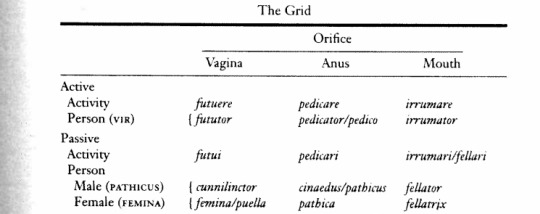
While we today conceptualize queer as homosexual sex, different parts of history had different cultural norms, and there were many ways to be strange and off-putting in sexuality. In roman society sexuality was seen through the lens of power, and as per our modern view, femininity was looked down upon.
One way in which we conceptualize Roman sexuality nowadays is through the teratogenic grid (Pictured above). This divides sex into six different roles: There are active and passive roles (Which I suppose are formed either by adding an -are to the end of the verb or an -i) (Sorry, that was a dumb joke about latin grammar), and there are three different orifices to be penetrated. You may notice that Latin has different words to correspond to each persons role in each specific sex act. Sex without a penis was not considered when discussing roman sexuality.
Another thing to be aware of is that romans were not as open to the concept of pederasty as Greeks were. However, their ideas of sex were still based on a system of power and on one partner taking a passive role. Equality in sex was not something normalized.
#roman sexuality#classical studies#roman history#queer#queer history#gay#gay history#lgbt#lgbt history#type: definition#this is an even dumber joke about grammar i didnt want to make in the main text#but if latin had active and passive sex roles then presumably greeks had the ever-elusive middle role in sex#greco roman collection
1 note
·
View note
Text
cw: arranged marriage, fluff, neglect at the beginning, ratio falling hard, pining, ratio being jealous of aventurine, unedited bc i wrote this with my heart not my brain
my brain has been thinking about an arranged marriage fic with dr. ratio...
he isn't kind to you at first, less than happy to share a life with a mere acquaintance. he's heard about you before in passing, noting your achievements with a grain of salt because nothing about you particularly mattered to him, irrelevant against the mass of scrolls and books he needs to read.
you don't really disturb his normal routine too much. you move in to his estate with a fair share of your belongings, but none of them crowd his house too much. you have your own room, pristine guest room unearthed by your artistic touch.
aside from dinners, you don't get to see each other too much. he starts his mornings early, getting up at the crack of dawn to exercise and start his day with a hearty meal. you wake up later, partaking in a slow morning, and if you glanced out the window, you might be able to see your husband running laps around the expanse of his gardens.
you admire his dedication and routine, it's fascinating to live beside a genius. everyday, the chest table that sits in the living room changes, the black and white pieces never remaining where you last recalled. the size of his blackboard is impressive, and yet too small to fit all of the formulas his brain remembers, hands effortlessly dancing along the surface to scratch number after number.
a frequent order of his estate is chalk. a new pile is delivered every three days, and he goes through them without fail every time.
during dinner, he tries to spare some conversation with you. you don't tell him too much about your day, not wanting to bore him with your menial chores. he's only half-listening either way, so you'll feign understanding about his work when he explains what he's up to.
ratio is not an attentive husband, but he doesn't mistreat you, either. he allows you to spend his assets without too much care, doesn't police your everyday tasks, and also doesn't bat an eye at other men or women. his pursuit of intelligence is important, and your wellbeing would not come in between that.
your monotonous, distant routine changes one autumn dusk. you're perched in the front yard with an easel set up before you, the sky in front of you now a blend of pink-purple hues. he returns home earlier than you expected, carriage stopping at the front of his estate, and he witnesses you in your tranquil state.
the paint strokes on the canvas before you are skilled, and show years of dedication to the craft. you're so invested in the piece before you, that you don't even hear him approaching until he calls your name.
"the night turns colder with each minute. shouldn't you come inside before you fall ill?" the scholar greets, and you're snapped out of your creative reverie, looking over at him.
"oh, i had not realised. let me clean up here, first." you take your canvas off the easel, but to your surprise, your spouse kneels down to organise your oil paints back into their box.
"make haste, then," he urges.
during dinner, he can't help but be curious over your hobby, the stubborn splotches of paint clinging to your hands visible to him. that night, you engage in uninterrupted conversation, and discover that he's an artist himself- a sculptor. it calms him, and all the statues reside in a removed room, adjacent to his study.
despite your years of matrimony, you had never once dared enter his study, but the design is so fittingly him. it is organised (well, as organised a genius can be), with shelves and shelves filled with books, discarded scrolls lay around the room, but even then, his taste for greco-roman aesthetics are seen. roman dorics act like stands for little plants, and his many certificates are displayed, along with other achievements.
(his study is overwhelmingly filled with them. though you knew of the merit of the man you were arranged to be married to, you had never known just how expansive the list is. perhaps, that only made him more intimidating to you, standing beside a genius does not feel so light to say anymore.)
he shows you his sculptures, and though many of them are... self portraits... the likeness is disgustingly accurate. it was as if he had casted himself in plaster and displayed it proudly. you wonder how long he must have stared in the mirror to perfect their appearance.
but, there are also various other formidable statues. some of people you recognise. you compliment his skill and don't get to see the blush that spreads along his cheeks.
it seems that you've chipped a way into his heart, because between brushstrokes and chiselled marble, he falls in love with you.
ratio knows he didn't start off being the best husband, but he tries to now, and begins by being present. asks you to dine together where possible, listens when you're talking about your day, and the two of you can be seen venturing downtown together; an unbelievable sight for those who believed that ratio was romantically inept.
perhaps, an even more unbelievable sight, was the soft smile on his face that glanced at you very adoringly, and how you remained unaware of his affections.
and, maybe a jealous veritas ratio is just as unbelievable.
he is practically glaring daggers at the side of a certain blond's head. ratio has never been fond of the scheming businessman, aventurine, and is even less so of the fact that you seem so close to him, more than you are with your own husband. you're speaking with him like how one would with old friends, a peaceful visit to the markets turned sour by his presence.
when you finally, finally, finally, bid farewell to aventurine, who gave ratio a look that signified he was up to no good, your husband held your hand in his gloved one with an unforgiving grip. his mood is dampened for the remainder of the day, and is only made better when you enquire about his sudden glumness, visiting his office to see if he was alright.
you leave him with a kiss on the crown of his head, and a whisper of 'goodnight', before retreating to your chambers, and the only thought that circulates in his head for the rest of the night is you, and how he's going to sweep you off your feet.
#*ੈ✩‧₊˚ earf's ideas that i'll never write#earthtooz: honkai star rail#dr ratio x reader#veritas ratio x reader#honkai star rail x reader#hsr x reader#ratio x reader#dr ratio fluff#dr. ratio x reader
3K notes
·
View notes
Text
doctor who companion idea. person who is literally any humanities major.
sick and tired of the doctor always choosing where to go, give me a classics major who is like “i have a thesis on this werid niche greco-roman practice due soon can we go check it out?”
give me a archeology major who wants to go see the things uncovered at their dig sites before they fell into ruin
give me a drama studies major who asks to go see lost forms of historical theater and performance
tell me the doctor wouldn’t love that, because you know they would. they would adore that.
#like come on!!!#also a drama studies major i would go see so many important theatrical events and like take notes#and the doctor loves humanity#you know he would love exploring it with their companion#doctor who#dr who#dw#the doctor
1K notes
·
View notes
Photo
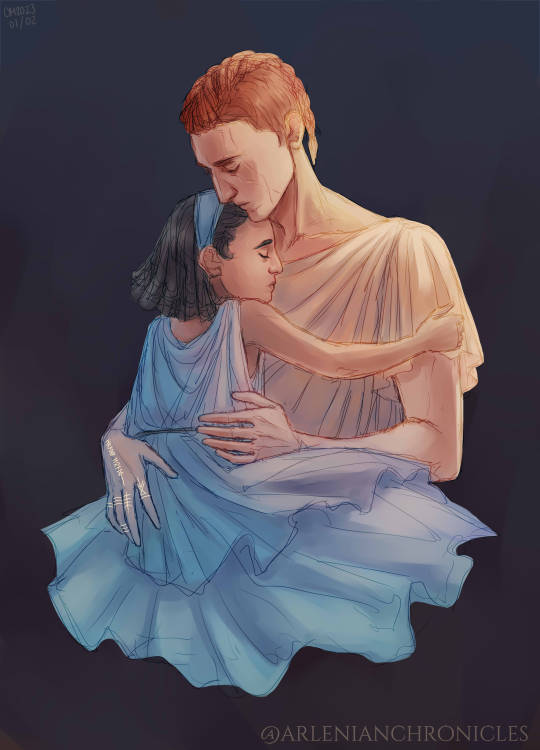
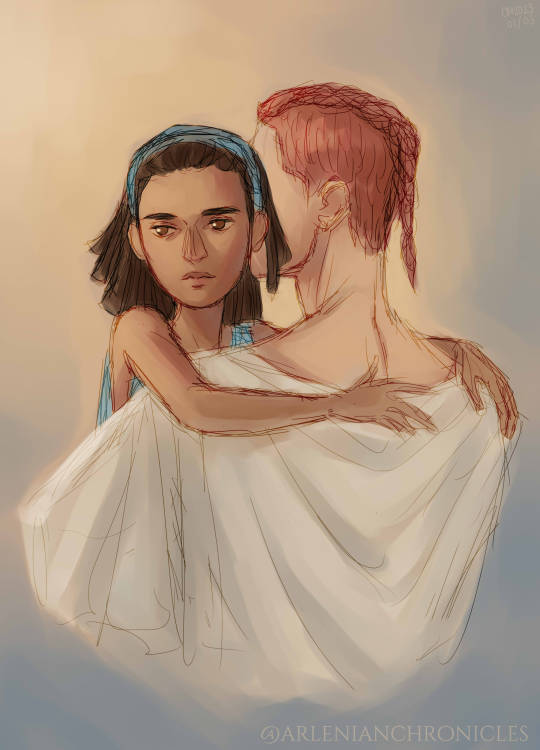
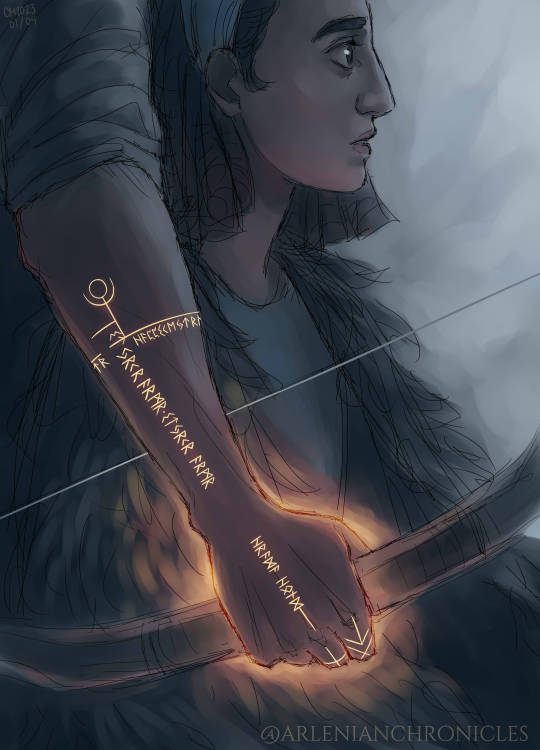
Some loose sketches of Atreus and Calliope, doubling as pose studies! All of them are from my post-Ragnarok AU where Atreus rescues Calliope from the Underworld, and they go on a little adventure on their way back to Midgard XDD One of their stops is Rome, hence Atreus wearing some Greco-Roman garb!
The third sketch is when they finally reach Midgard; Calliope is wearing a fur cloak similar to Kratos’ from the beginning of the game! And it looks like they’re about to get into a fight with some nasty creatures loll
#man i love exploring the dynamic between these two#siblings feels yaayy#art#my art#fanart#god of war#god of war fanart#god of war ragnarok#atreus#calliope#platonic love#family#siblings#tattoos#studies#sketches#fantasy#illustration#au
2K notes
·
View notes
Note
Sorry if you have been asked this before, but which parts of the abrahamic religions were borrowed from pagan theology? Like I have seen Christianity, especially, be accused of being largely appropriated from old pagan beliefs + practices but then I feel like the whole "history is written by the winners" thing and the fact that Christianity is so large makes it hard to be able to tell what exactly is native to Christianity and what is borrowed from or based in esrlier, non-abrahamic beliefs/practices.
Anon I'm sorry but that is one of those questions that you could spend the rest of your life studying.
To vastly, vastly oversummarize, Judaism arose from a Yahwism, which was a combination of it's neighboring Mesopotamian religions.
Christianity arose from a particularly apocalyptic sect of Judaism, mixed with elements of Zoroastrianism, and elements of several Greco-Roman mystery religions like Orphism.
Islam I know the least about. Generally, it arose from the influence of Christianity, Judaism, Zoroastrianism, and the rich cultural mythology of the Median empire.
Cultures blend! That's what cultures do!
470 notes
·
View notes
Text
I just want to clarify something: If you want to understand how Greek mythology and the Greek gods were represented and received from the Roman world onward, you NEED Ovid's Metamorphoses. For the Roman times, for the Middle-Ages, for the Renaissance, for the Modernity... ESPECIALLY for the Middle-Ages and the Renaissance since the Greek texts were either completely absent or really hard to obtain in these eras, unlike the Latin texts (such as Ovid's) which were everywhere and known by everybody. Ovid's Metamorphoses is, in this sense, a key element on how Greek mythology (but in truth Roman mythology in disguise) was shaped throughout Europe's popular culture and Europeans subconscious mind.
HOWEVER if you want to completely understand and thoroughly study Greek mythology in its - dare I say - "true" form, as in how it existed back in the times of Ancient Greece ; if you want to see and get how the Greek gods were seen and perceived by the Ancient Greeks themselves ; if you want to know the folktales and legends the Ancient Greek cities kept alive through their plays and their poems - do NOT use Ovid's Metamorphoses and get him the f*ck out of your mind, because Ovid did not play any part in actual Greek mythology, as he was a Roman man who wrote in Latin for a Roman audience, and went from simply slightly modifying some legends by mixing actual Latin/Roman religion-folklore in Greek traditions, to INVENTING ENTIRE GODS AND CHARACTERS OUT OF NOWHERE.
(Well not out of nowhere, to be fair, he always had a basis somewhere on late Greek myths or extrapolations of Greek texts - but he still invented a lot of things that then became somehow "canon" retrospectively to Greek mythology, but only through this new Greco-Roman mythology completely rebuilt and reshaped by the medieval and Renaissance authors, artists and scholars)
110 notes
·
View notes
Text
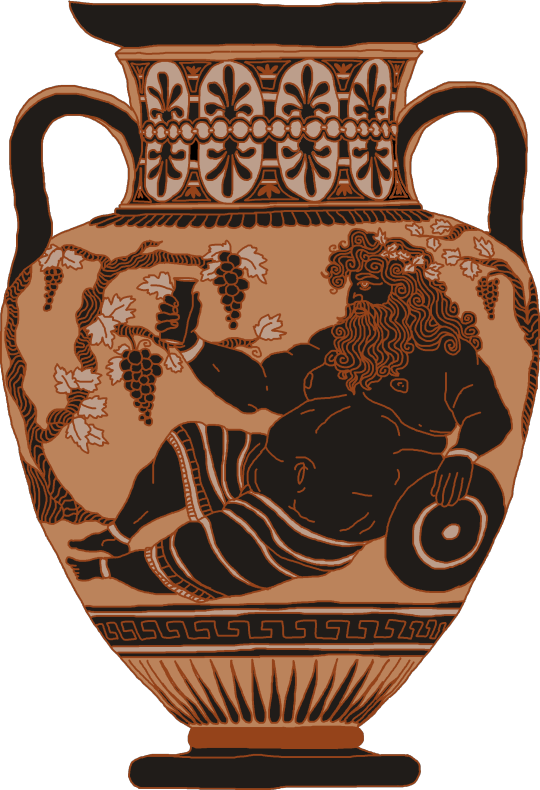
Big Boy Art Study #3: Greco-Roman Black-on-Red Terracotta (Fat Dionysus)
#hopefullyhusky#gainer art#male weight gain#gay bear#gay cub#gay art#gay belly#male wg#gay gainer#fat bhm#male feedism#bigboyartstudy#big boy
53 notes
·
View notes
Text
Trinimac, Creator of Death
In light of Douglas Goodall's new lore text, The Soft Doctrines of Magnus the Invisible, I have a new theory to propose: Trinimac, by killing Lorkhan, created death, and by extension Arkay. Hear me out.
“Only the shape-taker's respiration emptied the arc for the thief's eye”
This is a quote from Enantiodromia, the second part of the four-part text. The shape-taker is obviously Trinimac, who is known as such because of the Boethiah incident, and the thief's eye is referring to Arkay, who is associated with the Thief constellation. To me, this quote is implying that the former made room for the latter to exist (made it possible for Arkay to exist). Expanding on this, before Mundus death did not exist, the et'Ada were infinite and without limitations, which is why Lorkhan created Mundus; to teach their progeny, through the application of limit, how to become without limit. I believe that, when Trinimac killed Lorkhan at the behest of Auri-El, the concept was created. I find it highly likely that Lorkhan always intended for death to be invented, but I'm undecided on whether he planned for it to be created by Trinimac killing him. It does fit nicely into the theory that Lorkhan always intended for his heart to be ripped out– this heart is the heart of the world. Regardless, the first death was a murder.
That quote also somewhat evokes an elven ballad from ESO, Folly of Man, which laments the rise of mankind: “You'll learn what the Corpse-God wrought. Even Trinimac didn’t know, with his final blow, just how badly he'd been caught”. If Trinimac did indeed create death, based on everything we know about him, it's unlikely that he did so intentionally.
‘Enantiodromia’ itself is defined as the tendency for things to change into their opposites. Is that not what eventually happened to Trinimac?
On Orkey and Trinimalarkay
Orkey is the Nordic god of death, considered a fusion of Arkay+Malacath by many, and is most known for “stealing the Atmorans’ years”, or shortening their lifespans, which is exactly what Trinimac would have done to every mortal by creating death. On top of this, in Nordic legend, Orkey summoned Alduin who “ate almost every Nord down to six years old”. This is interesting because Alduin is, of course, connected to Akatosh/Auri-El, who ordered Trinimac to kill Lorkhan. Trinimac and Auri-El are both responsible for the death of Lorkhan, and both Orkey and Alduin have stolen years away from the Nords/Atmorans.
So who is Orkey? Is he Trinimac? Isn't Tsun Trinimac? Yes and no. For a long time people have tried to equate Trinimac/Malacath with Arkay through Orkey, and while I don't believe they're the same being, it does seem likely that they're connected. Arkay was created unintentionally by Trinimac through the murder of Lorkhan, and their relationship is somewhat similar to Peryite and Akatosh or Lorkhan and Namira. They are connected but Arkay is still ultimately a separate being. The Nords combined Arkay (‘death’) with his creator in an attempt to explain how he came into existence. This would explain how Tsun (who is theorised to be the Nordic equivalent of Trinimac) is present in the Nordic pantheon alongside Orkey, and how Trinimac is present in the Altmeri pantheon alongside Xarxes (who is theorised to be the Altmeri equivalent of Arkay).
And finally, tri-nymic and Arkay, Zenithar and Stendarr.
“Trinimac is probably one of the least understood underpinnings of the whole pantheon. I like him that way, but I would study Mithras if you really want to find out more” -Michael Kirkbride
To summarise, Mithras was a Greco-Roman god, inspired by Mithra, the Iranian god of the sun, justice, contract, and war. Mithra was part of the Ahuric Triad, along with Ahura Mazda (the creator deity, god of the sky), and Apam Napat (god of water). Although this may be boring, I believe tri-nymic is simply a reference to the Ahuric Triad. The Ahuric Triad reminds me of Padomay, Anu and Nir as well. Padomay is, of course, Lorkhan and Anu is Auri-El. What if Trinimac is Nir (the catalyst, the first possipoint)?
Finally, I am a big fan of @ayem's theory that Trinimac was always padomaic. Trinimac pretended to be anuic– and tried to be anuic– so that he could serve Auri-El, but ultimately he could only be Mauloch. The Roads seems to be about how one can only be what they are, which is a recurring theme in The Elder Scrolls.
“Hue is governed by momentum. As much as manifold Meridia loves the Blind, even orphans cannot change their color.”
This quote is obviously about Meridia, but I think it also applies to Trinimac. There are also countless parallels between Meridia and Trinimac: they were both champions of more powerful gods, they both tried (and failed) to be something else, and, in my opinion, Meridia assumed Trinimac's role as ‘warden’ of Nirn after his ‘death’.
Narratively, I think Trinimac accidentally creating death is a very important moment in his story. It's the moment that proves to him, without a doubt, that he will never be able to escape or erase what he is. He tried to be something static, unchanging, and yet he created death– the final destination, the unavoidable end. What is death if not the ultimate transition? No matter how hard you try, you cannot escape your nature.
Some more random thoughts:
In Nordic legend, Alduin/Orkey's curse is thrown onto the orcs by Ysmir Wulfharth, who is believed to be a Shezarrine. I feel like this could be a reference to how the orcs were also transformed/suffered when Trinimac was defeated by Boethiah (who hoped to avenge Lorkhan).
Additionally, Malacath's realm is the ashpit and ashes are associated with death.
#tes#malacath#trinimac#also lorkhan and trinimac were boyfriends#judas and jesus.#alexa play judas' death#sorry i only care about trinimac i haven't even started trying to understand the rest of the text yet
107 notes
·
View notes
Photo
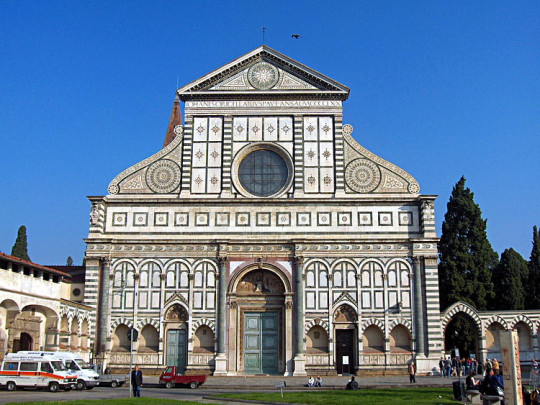
Leon Battista Alberti
Leon Battista Alberti (1404-1472 CE) was an Italian scholar, architect, mathematician, and advocate of Renaissance humanism. Alberti famously wrote the treatise On Architecture where he outlines the key elements of classical architecture and how these might be reused in contemporary buildings. Even more influential were his writings on painting and sculpture, which transformed the theoretical practices of Renaissance artists. Alberti put his ideas into practice and designed many churches in various Italian cities, perhaps the most influential being the San Andrea of Mantua (1470 CE), the first monumental classicizing building of the Renaissance.
Early Life
Alberti was born in Genoa on 14 February 1404 CE. He was an illegitimate member of a wealthy merchant-banker family, which had been exiled from Florence in 1387 CE. The family moved from Genoa to Venice and, thanks to his father Lorenzo, Alberti enjoyed a school and university education in Padua followed by a stint at the University of Bologna. Alberti's education included mathematics, Greek, Latin, classical literature, and, finally, a doctorate in canon law from Bologna in 1428 CE.
Alberti moved to Rome where he worked as a papal secretary from 1432 CE. One task at the Papal Chancery was to write a new version of the lives of the saints and martyrs. The young scholar took holy orders and this brought with it several benefices that improved his income significantly. However, his position in the church seems not to have had any influence at all on his humanist writings or his treatises on art and architecture. When the Medici family took power in the early 1430s CE, Alberti was finally able to return to his ancestral home. Florence was then the capital of Renaissance art and architecture where men like Donatello (c. 1386-1466 CE) and Filippo Brunelleschi (1377-1446 CE) were reviving the ideals of classical antiquity. Alberti would later write that his contacts in Florence inspired him to participate in this revival himself.
Alberti continued in his role as a papal secretary but also acted as a sort of artistic consultant to rulers in various Italian cities such as Florence, Ferrara, Mantua, Urbino, and Rimini. Moving around Italy gave Alberti a great insight into the many Greco-Roman remains still visible and perhaps inspired him to make plans for a survey of ancient Roman buildings in Rome. Alberti's study of ancient architecture resulted in him noting that there were actually five and not four classical orders as previously thought. This fifth one, subsequently called the Composite order, was a mix of elements from the Ionic and Corinthian orders. Also interested in architectural theory, Alberti was a keen student of On Architecture by the Roman architect Vitruvius (c. 90 - c. 20 BCE). Accordingly, when Alberti moved into this new field in more practical terms, he wanted his buildings to both imitate the austere grandeur of ancient Greece and Rome's finest buildings and reproduce their classical ratios of height and length. Another important consideration was that buildings should display a harmonious balance between function and decoration.
Continue reading...
32 notes
·
View notes
Note
I saw how some people use historical figures from Chinese mythology, folklore and religion for NSFW, literally, turning them into their own OC's, and I was wondering, what do you think of that? Because it seems like they just took them, and didn't do more research asking the question of "is that right?"
As per your second question for me I will leave that unaddressed and instead invite you to discuss those matters properly in private, especially if this answer is dissatisfying.
I personally do not care much if NSFW or suggestive content of such deities exist (except for the child Nezha, leave his child form out of this.) or that it’s being produced in the first place. The numerous Chinese social media sites like LOFTER, Douban (豆瓣) and Xiaohongshu (小红书) feature fan art of Daoist deities like Nezha and Er’lang in these kinds of situations. Fan fiction of these deities are similarly of the same attitude. It has nothing to do with if proper research has been conducted, especially in the case of Er’lang Shen who cannot act on romantic feelings even if he wanted to.
It feels to me that there’s an exception regarding Chinese deities and folk heroes when deities of other religions have been sexualized. This screams of not only hypocrisy but of ignorance in being offended on behalf of the Chinese. In the few months I was active in the LMK fandom I’ve come to realize a majority of the other Chinese in the fandom are either adopted or second generation immigrants with no real cultural background; and as a consequence have severely inaccurate biases on matters like this because they aren’t aware of how insignificant this is.
I’m admittedly not active within the LMK fandom anymore and as such I don’t know what’s happening there unless someone is compelled to talk about what is going on. But it feels to me that as per usual people are holding Journey to the West as the be all end all on numerous fronts when the books really cannot and should not be heralded as such. Moreover, it’s strange that the fandom is completely okay with sexualizing Sun Wukong, the Six Eared Macaque, and the Golden Winged Peng while any other character is unacceptable.
I assure you that numerous derivative works feature Chinese deities in relationships and sexual contexts, even Tang Sanzang is featured in movies or television shows with a romantic partner despite relationships of that nature betray his Buddhist faith.
I’ve been considering making a post about the cultural dissonance that’s happening here and various attitudes or opinions other people have because they lack the cultural context to realize how insignificant and misinformed a lot of this “discourse” actually is.
What is it about Chinese mythology that sets it apart from Nordic or Greco-Roman mythology in these ways? Why is it perfectly acceptable to sexualize Loki or Achilles, but not someone like Muzha (who was a very real person that became deified, in the same fashion as Guan Yu, as who he was studying under was seen as an incarnation of Guanyin)?
I don’t think this type of thinking will ever make sense to me as a true testament to how different the fandom (especially on Twitter) and myself feel about this matter.
#nezha#li nezha#lmk nezha#monkie kid nezha#erlang shen#lmk erlang#guan yu#guanyin#muzha#li muzha#tripitaka#tang sanzang#journey to the west#jttw#sun wukong#lmk sun wukong#six eared macaque#lmk six eared macaque#liu’er mihou#xiyouji
99 notes
·
View notes
Text
As a pagan, every time I go study Greco-Roman archaeology I feel like a Christian in a Catholic school
If you know what I mean
#in a good way#MIK TALK#apollo devotee#witch blog#witchblr#hermes devotee#hera devotee#hellenic pagan#pagan#paganism#pagan witch#paganblr#witch stuff#witch
102 notes
·
View notes